|
|
|
Building Biographies1
Gulammohammed Sheikh I
Navjot Altaf I Ram Rahman I Riyas Komu
Building Biographies
presents a selection of artworks by artists Gulammohammed Sheikh, Navjot
Altaf, Ram Rahman and Riyas Komu. The exhibition is an attempt to map the
way the architectural sites become citation grounds for reflecting on
visual, spatial, political and environmental concerns for the artists.
This exhibition looks at ‘biography’ as a set of layered meanings and
metaphors that transform the architectural sites to a level of
transcendence. The collection is an insight into how artists relate to these
structures and their biographies. These artworks recount human endeavours
and aspirations - the sites and structures bearing witness to decades and
centuries of changing environments. Each of the artists deploys a distinct
visual device to evoke compositions of the architectural spaces utilizing or
referencing photography for creating visual intricacies in their
interventions. The structures that embody the visions of the architects,
engineers, and artisans are revisited through the artist's eyes where they
dramatically re-emerge through the interplay of lines, patterns, light,
shade, colour and texture. The massive and the minuscule manifest
complementing each other. The political and social dimensions unfold slowly
in the contemporary context.
Gulammohammed Sheikh
The photographs of Chandigarh Legislative Assembly
shot by Gulammohammed Sheikh during his trip in 1966 are a statement on
visual and aesthetic pleasures of scale, design and function. Sheikh
playfully arrests the horizontal, vertical and diagonal lines and their
interventions in these photographs. "Around late 1966 after I returned from
a three-year stay in England, I saw a vacancy advertised for the post of
lecturer in art history at Chandigarh College of Art. Bhupen (Khakhar) and I
decided to apply because I was unemployed and Bhupen was fed up of his job
as an accountant. Neither of us expected to land the job (and neither of us
did), but we were keen to see Corbusier's architecture, and also to relish
the visual bonus of Chandigarh Museum's famed collection of miniature
paintings. So off we went to Chandigarh. I carried my Asahi Pentax K2 (SLR)
with 35mm black and white and colour rolls of films. Having been to Ronchmp
in France to see the amazing modern church Le Corbusier had designed, it was
fascinating to see his vision of the new town with a fresh eye. I went about
taking pictures of the iconic buildings but concentrated on the great
monument, the Legislative Assembly." states Sheikh recounting this memorable
trip.
Navjot Altaf
Series of drawings ‘How Perfect Perfection Can Be’ are broadly inspired by
the engineering /architectural perfection / scale and the visual pleasure
artist experiences. And yet Navjot reflects upon the anthropogenic impact of
the material and resource heavy development on ecology. A part of her larger
project that explores the relationship between nature and the asymmetry
introduced by urbanization in the context of complex environmental changes.
The images are created using watercolours and superimposed with markings in
the way of graphs depicting the energy consumption over a period.
Ram Rahman
Ram Rahman revisits some of the known buildings designed by
distinguished architects from various Indian cities during the first few
decades after the Indian independence. He reflects on the visions of the
architectural legacy of modern India suggesting us to relook at these
buildings under the new light of political conflict – to bring out
changed meanings of the sites over time. Some of these photographs are
part of his research on the modern architecture of Delhi through the
lens of contemporary politics.
Riyas Komu
All architecture is a shelter. The shelter for the departed such as
cemeteries becomes a subject of inquiry for Riyas Komu. He revisits the
ruined burial grounds in Karachi capturing the decay enforced by time,
natural forces and human factors. The photographs of these cemeteries
with rows of abandoned tombstones speak about the impermanence nature of
memorials. The tombs surrounded by broken walls and arches resonate how
the built environment undergoes a cycle of decay becoming one with
nature. The memories are buried and who knows of whose?
_____________________________
1 A building biography interprets architecture by focusing on the
sequences of human activities and decisions that went into creating
a building, using a building, and abandoning a building, part of a building,
or a group of buildings.
|
|
Artworks |
|
|
|
|
|
|
|
|
|
|
|
|
|
|
|
|
|
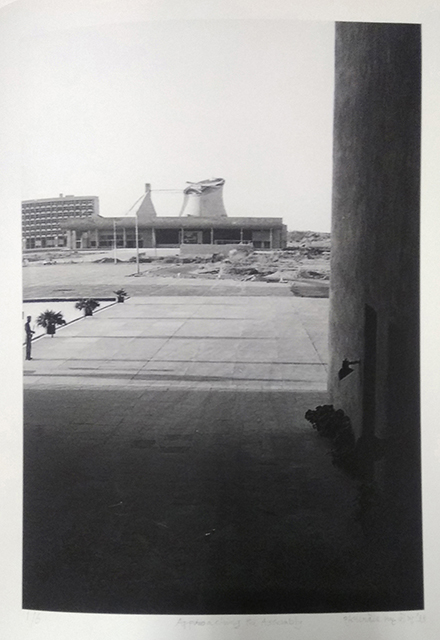 |
|
|
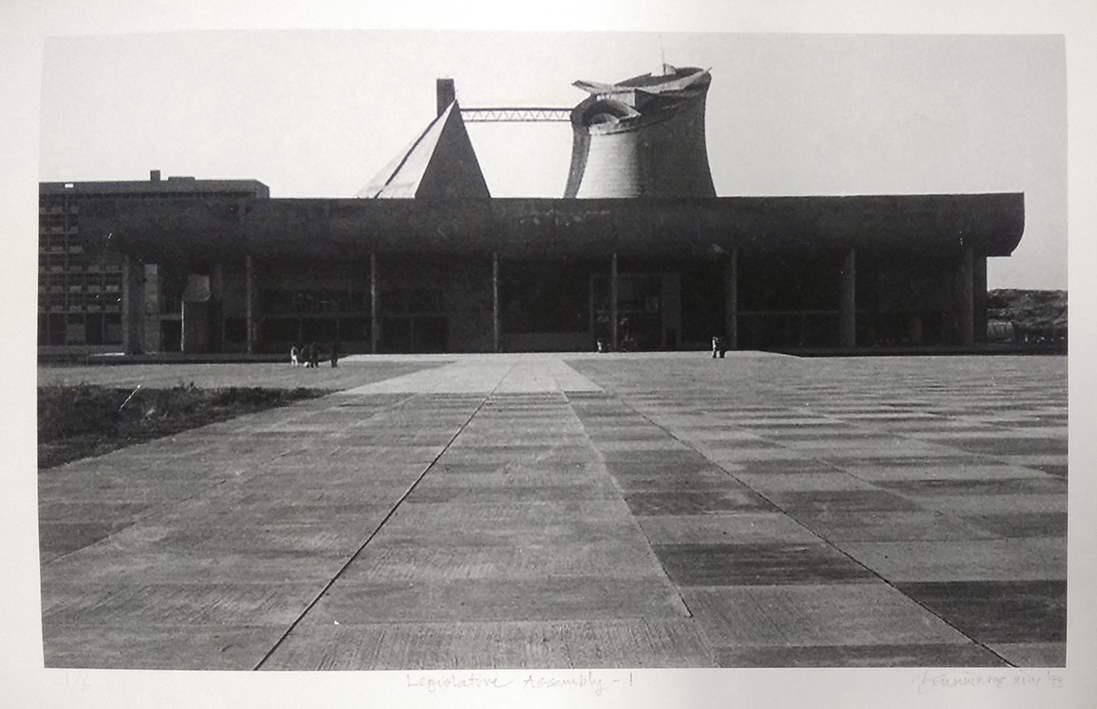 |
|
|
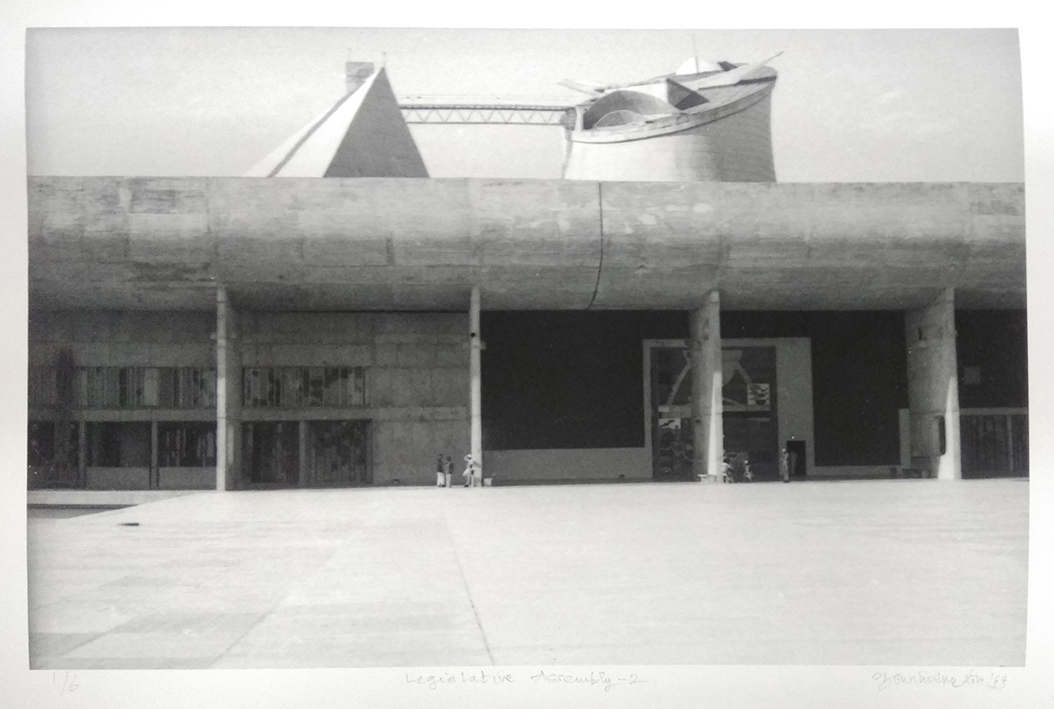
|
GM1, Gulammohammed Sheikh,
(Set of 6),
Approaching the Assembly,
1966, Printed on Hahnemuhle archival,
Fine Art Inkjet paper on Epson Surecolor P7000 printer, 15 x 9 inches, edition no.3/6 |
|
|
GM2, Gulammohammed Sheikh, Legislative Assembly - 1,
1966, Printed on Hahnemuhle archival, Fine Art Inkjet paper on Epson
Surecolor P7000 printer, 9 x 15 inches, edition no.3/6
|
|
|
GM3, Gulammohammed Sheikh, Legislative Assembly -
2,
1966, Printed on Hahnemuhle archival, Fine Art Inkjet paper on Epson
Surecolor P7000 printer, 9 x 15 inches, edition no.3/6
|
|
|
|
|
|
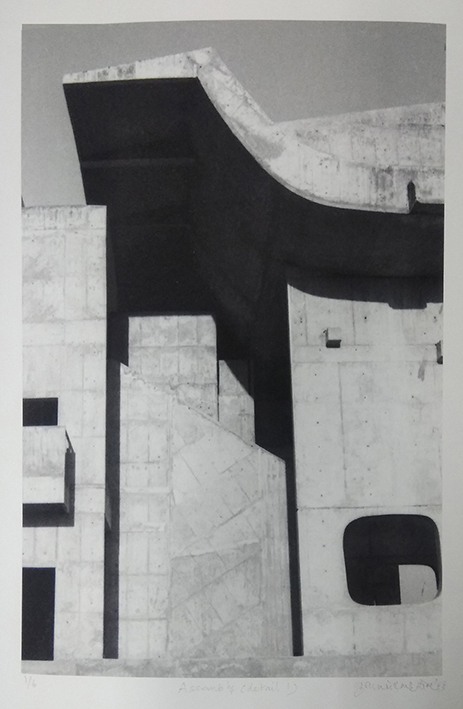
|
|
|
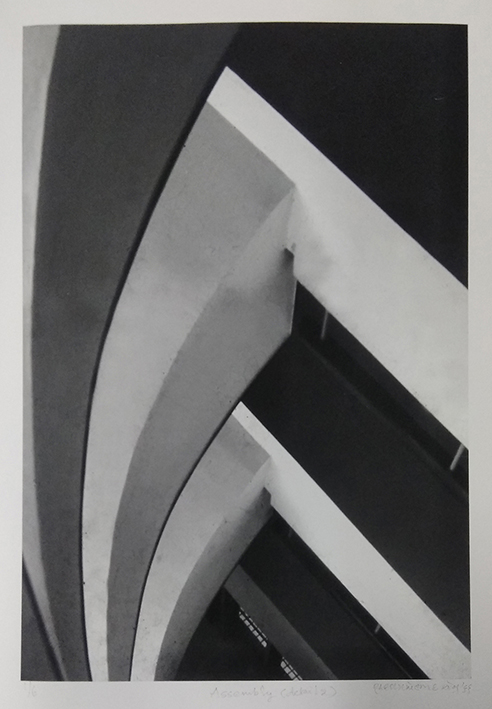 |
|
|
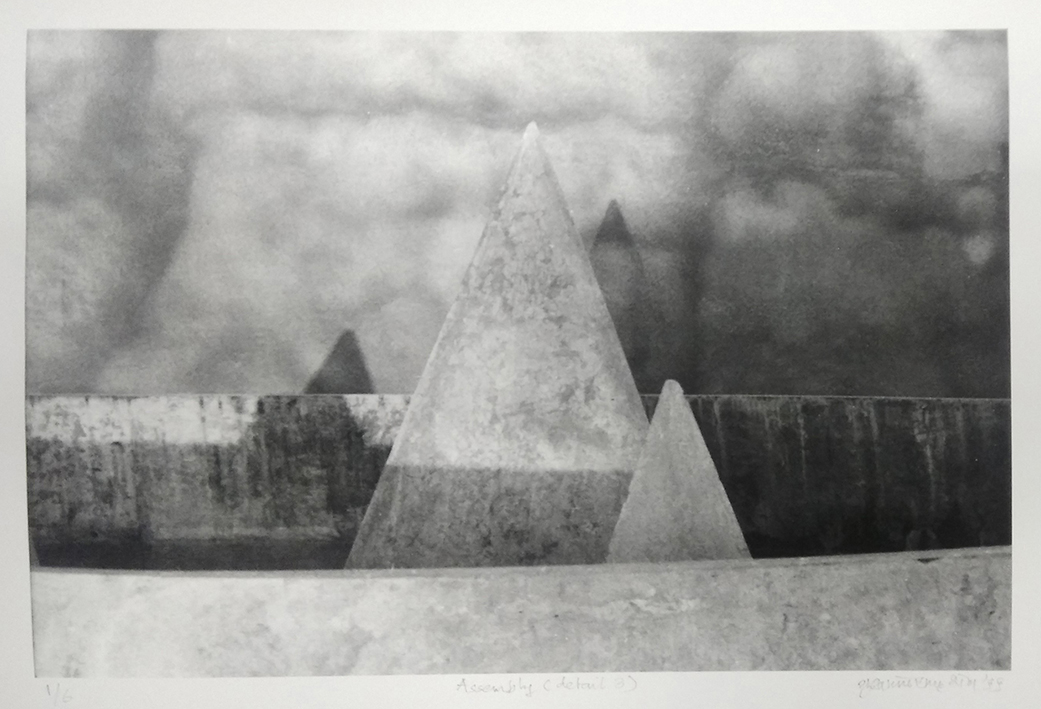 |
GM4, Gulammohammed Sheikh,
Assembly (detail 1)
1966, Printed on Hahnemuhle archival, Fine Art Inkjet paper on Epson
Surecolor P7000 printer, 15 x 9 inches, edition no.3/6 |
|
|
GM5, Gulammohammed Sheikh,
Assembly (detail 2),
1966, Printed on Hahnemuhle archival, Fine Art Inkjet paper on Epson
Surecolor P7000 printer, 15 x 9 inches, edition no.3/6 |
|
|
GM6, Gulammohammed Sheikh,
Assembly (detail 3)
1966, Printed on Hahnemuhle archival, Fine Art Inkjet paper on Epson
Surecolor P7000 printer, 9 x 15 inches, edition no.3/6 |
|
|
|
|
|
|
|
|
|
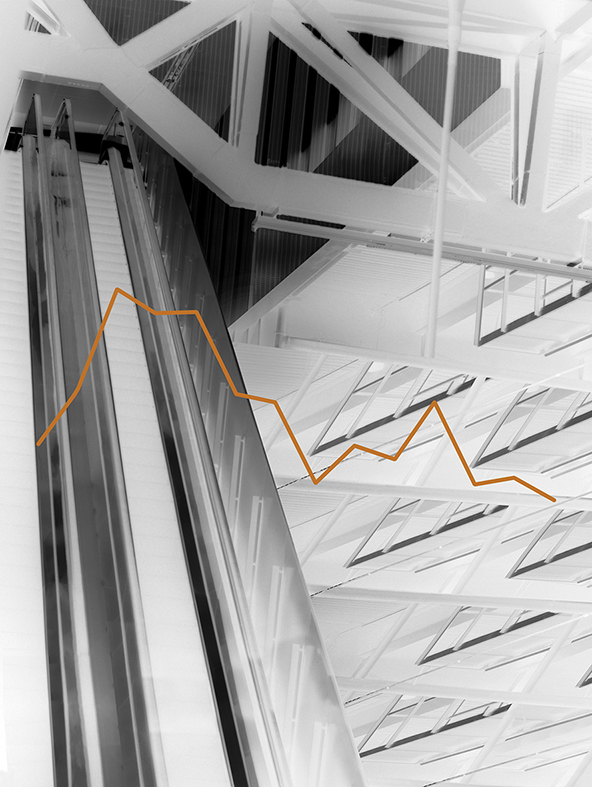
|
|
|
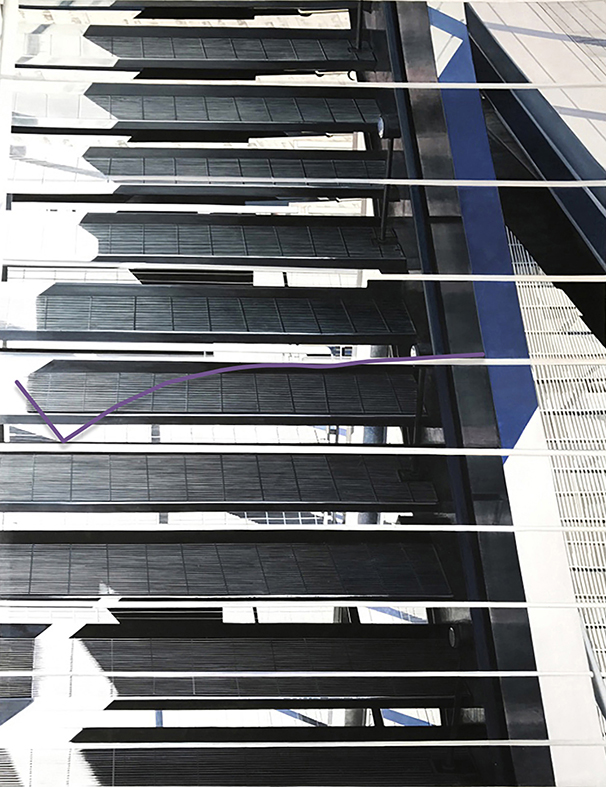 |
|
|
|
|
NA-1,
Navjot Altaf, From the series How Perfect Perfection Can Be, 2015-2017,
Watercolour drawing on Wasli paper and PVC on acrylic, 32 x 22.5 inches,
Graph: Annual change in Chinese coal consumption, 2001-2014
|
|
|
NA-2,
Navjot Altaf, From the series How Perfect Perfection Can Be, 2015-2017,
Watercolour drawing on Wasli paper and PVC on acrylic, 32 x 22.5 inches,
Graph: Annual change in Chinese coal consumption, 2001-2014
|
|
|
|
|
|
|
|
|
|
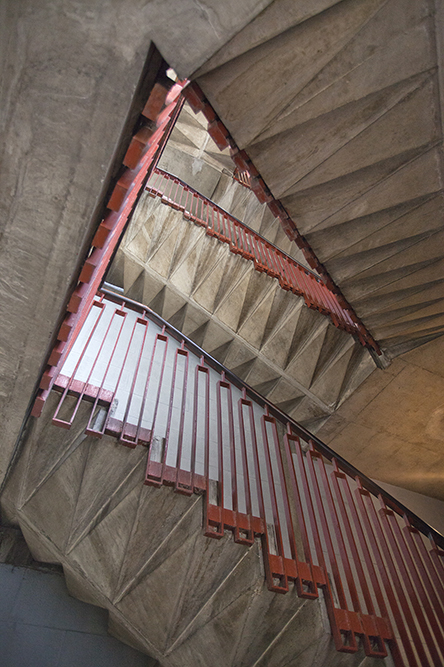
|
|
|
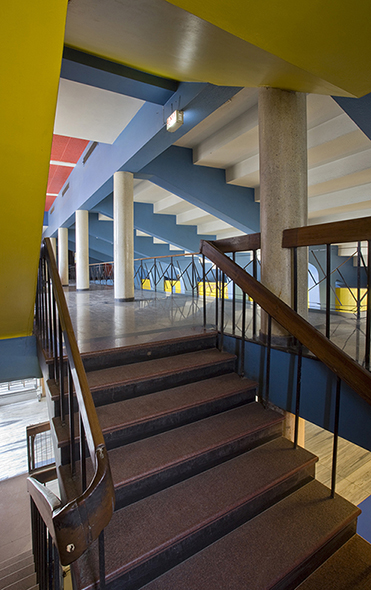 |
|
|
|
|
RR-1, Ram
Rahman, India International Centre, New Delhi, Joseph Allen Stein, 1962,
Archival digital print on Photo Rag paper, 36 x 24 inches, edition
no.1/10 |
|
|
RR-2, Ram
Rahman, Shiela Cinema Delhi, Habib Rahman, 1961,
Archival digital print
on Photo Rag paper, 36 x 24 inches,
edition no.1/10 |
|
|
|
|
|
|
|
|
|
|
|
|
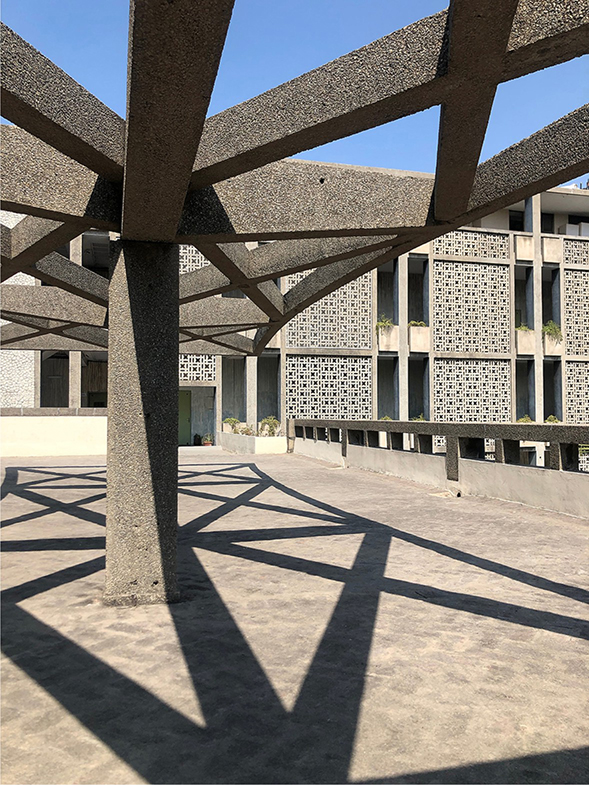
|
|
|
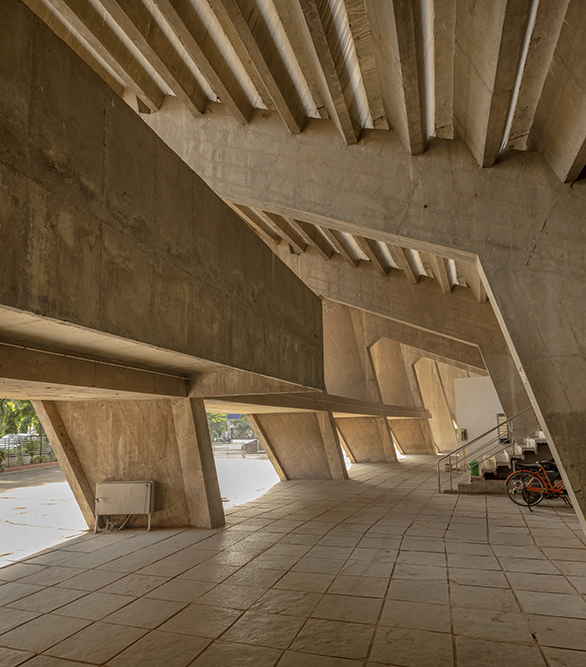
|
|
|
|
|
RR-3, Ram
Rahman, Triveni Kala Sangam, New Delhi, Joseph Allen Stein, 1963,
Archival digital print on Photo Rag paper, 32 x 24 inches,
edition no.1/10
|
|
|
RR-3, Ram
Rahman, Stadium, Ahmedabad, Charles Correa/Mahendra
Raj, 1965, Archival
digital print on Photo Rag paper, 24 x 24 inches,
edition no.1/10
|
|
|
|
|
|
|
|
|
|
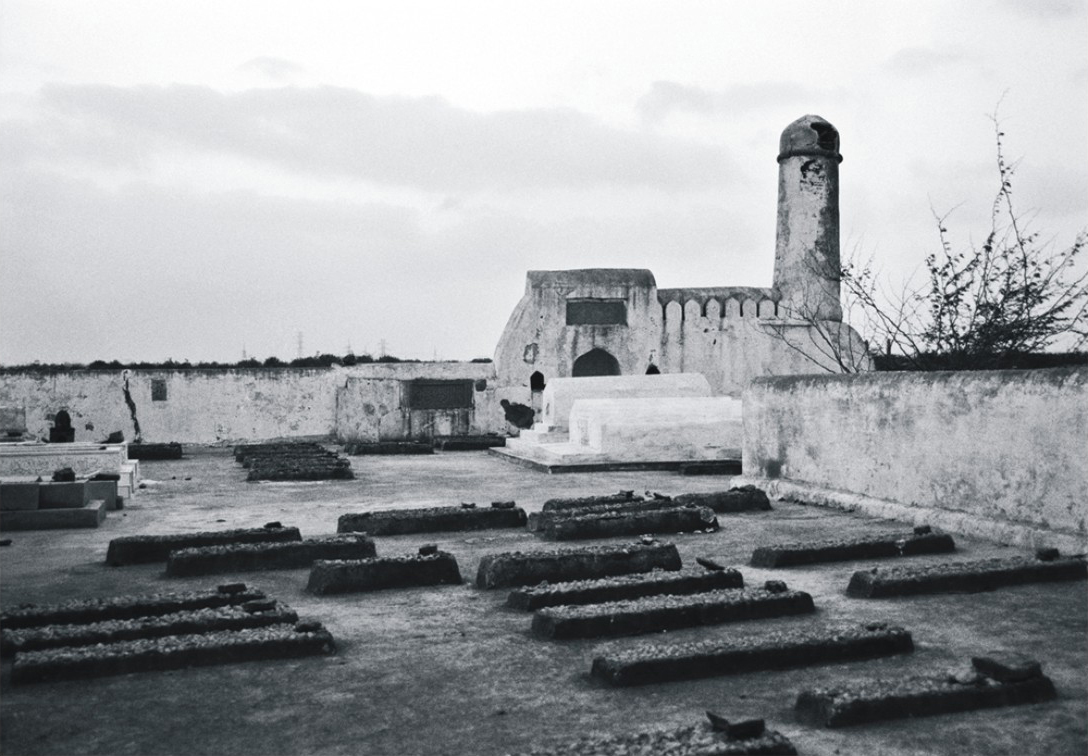 |
|
|
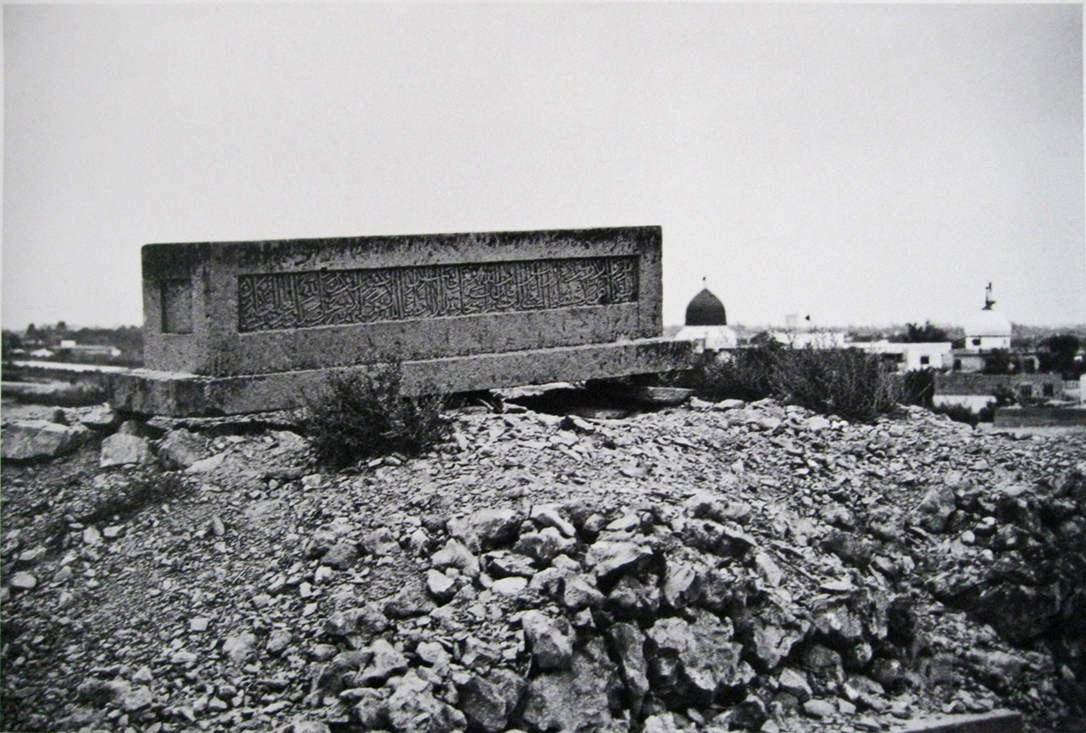
|
|
|
|
|
RK-1, Riyas
Komu, Karachi Series, 2005, Archival print on brushed
silver metal, 20 x 30 inches, edition no. 5/10 |
|
|
RK-3, Riyas
Komu, Karachi Series, 2005, Archival print on brushed
silver metal, 20 x 30 inches, edition no. 5/10 |
|
|
|
|
|
|
|
|
|
|
|
|
|
|
|
|
| |
|
|
|
|
|
|
|
![]()